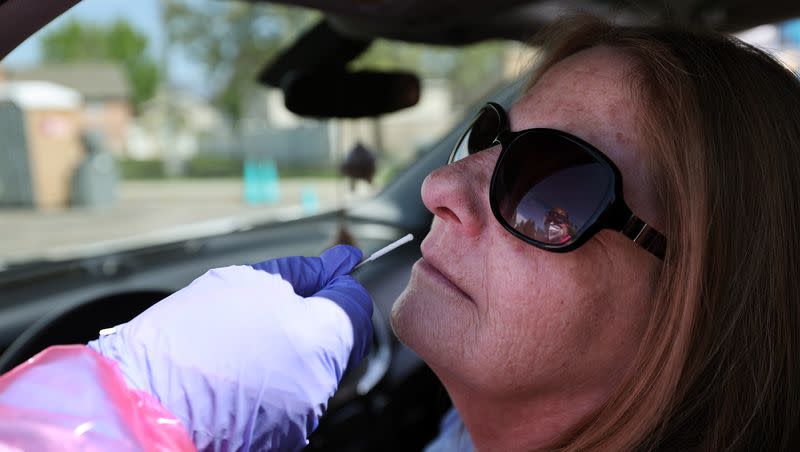A gene variant might be why some people don’t show COVID-19 symptoms

A gene variant may be the reason many people tested positive for COVID-19 without having any symptoms, a study published Monday in the journal Nature said.
Jean-Laurent Casanova, a pediatric immunologist at Rockefeller University in New York City, told Nature that the study “deserves a round of applause,” since the link discovered is “stronger than any other association for a common gene published” concerning COVID-19.
The international study suggests those who carried a specific human leukocyte antigen, or HLA, mutation were most likely to be infected with a disease without showing any symptoms.
“People with the mutated gene were twice as likely to remain asymptomatic as were people without it; people with two copies of the gene were eight times as likely,” per the article.
Jill Hollenbach, an immunogeneticist at the University of California, San Francisco, who co-authored the report, told Nature, “We were pretty stunned by the magnitude of the effect.”
Related
What is human leukocyte antigen (HLA)?
The antigen is a protein found on the surface of cells that helps signal to the body’s immune system if something is wrong, NBC News said.
“But the proteins aren’t identical to those of siblings, family members or friends, thanks to tiny differences on the genetic level that make each person’s HLA proteins unique,” per NBC News.
The Washington Post said results of the study showed that of the 1,428 unvaccinated individuals who reported a positive coronavirus test, 136 of them had no symptoms.
“Among the asymptomatic participants, 20% carried a common HLA variant called HLA-B*15:01,” the Post added.
Neville Sanjana, an associate professor of biology at New York University and on the faculty of the New York Genome Center, told NBC News that “when there are diverse pathogens that we are exposed to, not all people’s immune systems are going to respond to pathogens in the same way.”
Related
COVID-19 controversy: When will we ever move past it? | Opinion
What is it like to have long COVID? Utah teacher shares his story
The Post said there were almost 30,000 people in the study. They used their phones to track COVID-19 symptoms, and other factors, like if they had taken a coronavirus test that week and a monthly note on whether they had been hospitalized.
Mary Carrington, an immunogeneticist at the Frederick National Laboratory for Cancer Research in Maryland, told Nature that these findings could provide meaningful information for future vaccinologists that would “not only tamp down disease severity but also prevent symptoms.”
Hollenbach told the Post, “If we could design a vaccine that maybe doesn’t stop you from getting infected but can handle the infection so readily that you don’t have any symptoms, I’d personally be very happy with that.”

